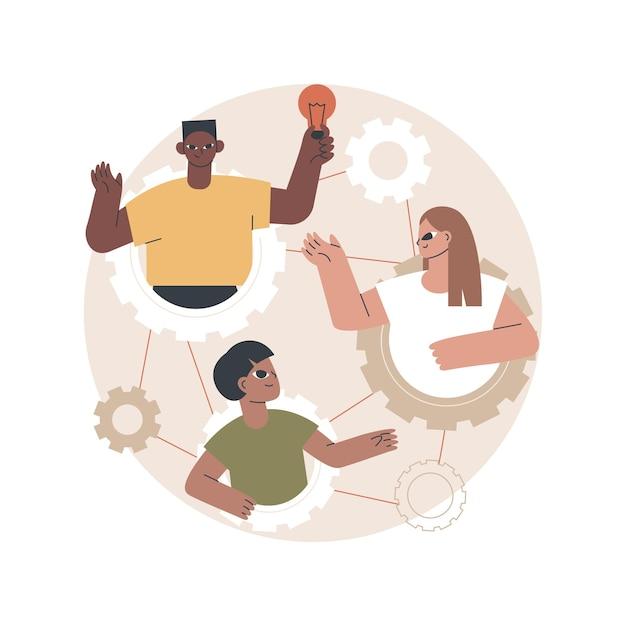Welcome to our blog post on poor interpersonal skills! In today’s fast-paced world, effective communication and the ability to connect with others are crucial. Interpersonal skills play a significant role in how we interact and build relationships with the people around us. However, not everyone possesses great interpersonal skills, and understanding what constitutes poor interpersonal skills is essential for personal and professional growth.
In this blog post, we will explore various examples of poor interpersonal skills and delve into the effects of emotional intelligence on interpersonal communication. We will also discuss how emotions can impact our ability to connect with others and provide tips on overcoming these challenges. So, whether you’re curious about improving your own interpersonal skills or simply interested in understanding this vital aspect of human interaction, you’ve come to the right place. Let’s dive in!

Examples of Poor Interpersonal Skills
What Makes for a Terrible Conversation Partner
When it comes to engaging in a meaningful conversation, there are some individuals who seem to possess a special talent for making it an excruciating experience. Picture this: you’re sharing an anecdote about your recent vacation, and instead of responding with interest or asking follow-up questions, they quickly shift the topic to something unrelated, often just about themselves. This self-absorbed conversationalist fails to show any genuine concern for what you have to say and acts as if their own stories are far more significant. Interacting with such an individual can leave you feeling like you’re competing for airtime rather than engaging in a mutually rewarding conversation.
The Art of Monologue: How to Bore Everyone Around You
Have you ever encountered that person at a social gathering who drones on and on about a topic without pausing to gauge the interest or engagement of those around them? They have mastered the art of the monologue. This individual seems to have an inexhaustible supply of stories, opinions, and unsolicited advice that they are eager to share, regardless of whether anyone else wants to listen. Their monotonous delivery can drain the energy from the room faster than those long, unskippable YouTube ads. When it comes to conversation, they are less interested in dialogue and more focused on delivering a never-ending speech.
Misreading Social Cues: The Awkwardness Amplifiers
Some people possess an unfortunate talent for misinterpreting social cues, turning already uncomfortable situations into awkward spectacles. Picture this scenario: you’re engaged in a casual conversation with a colleague when you drop a light-hearted comment, clearly intended as a joke. Instead of recognizing the humor, they take your comment at face value, unleashing a cascade of awkwardness. They fail to pick up on subtle cues, misjudge sarcasm, or struggle to gauge appropriate boundaries. The result? Uncomfortable silences, crossed wires, and an overwhelming desire to escape the situation as swiftly as possible.
The Non-Listener Extraordinaire: Ignoring is My Middle Name
Ah, the non-listener extraordinaire, the master of selective attention. This individual gives the impression that they possess a sixth sense for filtering out anything that doesn’t align with their immediate interests. You could be pouring your heart out about a personal struggle, and they’ll respond with a vacant stare and an unrelated remark about avocado toast. Not only do they fail to actively listen, but they also demonstrate an astonishing ability to divert the conversation back to their comfort zone. It’s as if they wear invisible earmuffs that block out anything deemed irrelevant to their own agenda.
Lack of Empathy: The Emotional Black Hole
Finally, we come to the individual who leaves empathy at the door and traverses through life with an emotional void. This person seems impervious to the feelings and experiences of others, often dismissing or minimizing their emotions. When faced with someone sharing their joys, sorrows, or anxieties, they respond with cold indifference or offer unsolicited advice that underscores their lack of understanding. Their inability to empathize creates a disconnect, leaving those seeking support feeling unheard and invalidated.
In conclusion, poor interpersonal skills can manifest in various forms. Whether it’s dominating conversations, misreading social cues, or lacking empathy, these behaviors can hinder meaningful connections and leave a trail of awkwardness in their wake. So, let’s strive to be more mindful of our own interpersonal skills and aim to create conversations that are inclusive, engaging, and genuinely enriching for all involved.

FAQ: Examples of Poor Interpersonal Skills
How does the absence or presence of emotional intelligence affect interpersonal communication
Emotional intelligence plays a crucial role in interpersonal communication. When someone lacks emotional intelligence, they may struggle to understand and manage their own emotions, as well as empathize with others. This can lead to various issues in communication, such as:
-
Difficulty expressing feelings: People with low emotional intelligence might find it challenging to convey their emotions effectively. They may appear detached or indifferent, which can hinder open and honest communication.
-
Lack of empathy: Empathy is the ability to understand and share the feelings of others. Without emotional intelligence, individuals may struggle to recognize and connect with the emotions of those around them. This can lead to misunderstandings and strained relationships.
-
Ineffective conflict resolution: Interpersonal conflicts are a part of life, but those lacking emotional intelligence may struggle to navigate them successfully. They may be unable to manage their own emotions during conflicts or fail to understand the perspectives of others involved, resulting in unresolved issues.
-
Poor communication control: Emotional intelligence also involves controlling emotions during communication. People without this ability may become easily overwhelmed by their own emotions, leading to outbursts or passive-aggressive behavior that disrupts healthy communication.
What are examples of poor interpersonal skills
Examples of poor interpersonal skills are vast and can vary depending on the specific situation and personality types involved. Some common examples include:
-
Poor Active Listening: Not paying attention, interrupting, or failing to understand and respond appropriately to what others are saying.
-
Lack of Empathy: Failing to understand or consider the feelings and perspectives of others, leading to a lack of connection and understanding.
-
Ineffective Verbal Communication: Difficulty expressing thoughts clearly, using inappropriate language, or speaking in a condescending or disrespectful manner.
-
Nonverbal Communication Issues: Displaying negative body language, such as crossed arms or avoiding eye contact, which can create barriers and signal disinterest.
-
Lack of Conflict Resolution Skills: Being unable to manage disagreements positively, resulting in arguments, resentment, or unresolved conflicts.
-
Poor Teamwork and Collaboration: Struggling to work well with others, not contributing to group efforts, or failing to communicate and share information effectively.
How do emotions affect interpersonal communication
Emotions have a significant impact on interpersonal communication. They can influence how we perceive, interpret, and respond to others. Here’s how emotions can affect communication:
-
Tone and inflection: Emotions can influence the tone of voice we use, such as speaking with anger, excitement, or sadness. These emotional cues can convey meaning and influence how our message is received.
-
Nonverbal cues: Facial expressions, body language, and gestures are powerful nonverbal cues influenced by emotions. They provide context and additional meaning to our words, affecting the overall communication process.
-
Emotional filters: Our emotional state can act as a filter, shaping how we interpret and respond to the words and actions of others. For example, being in a bad mood might make us more likely to perceive a neutral comment as negative.
-
Empathy and connection: Emotions help us connect with others on a deeper level. By understanding and acknowledging the emotions of those we interact with, we foster empathy and forge stronger interpersonal relationships.
How do you overcome poor interpersonal skills
Improving interpersonal skills takes time, effort, and self-awareness. Here are a few strategies to overcome poor interpersonal skills:
-
Enhance emotional intelligence: Pay attention to your own emotions and try to understand them better. This increased self-awareness can help you manage your emotions effectively and develop empathy for others.
-
Practice active listening: Focus on truly listening to others without interrupting or formulating your response prematurely. Reflect back on what they say to show that you understand and value their perspective.
-
Seek feedback: Ask trusted friends, family members, or colleagues for honest feedback on your interpersonal skills. Their insights can help you identify areas for improvement and provide guidance on specific behaviors.
-
Develop conflict resolution skills: Learn methods for resolving conflicts in a calm and constructive manner. This includes active listening, finding common ground, and exploring mutually beneficial solutions.
-
Practice effective communication: Work on expressing your thoughts clearly and respectfully. Avoid defensive or aggressive language, and pay attention to nonverbal cues to ensure your message aligns with your intentions.
By implementing these strategies and remaining open to growth, you can overcome poor interpersonal skills and strengthen your relationships with others. Remember, interpersonal skills are a lifelong learning process, so be patient and persistent in your efforts.
